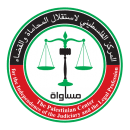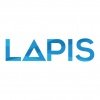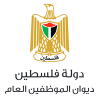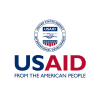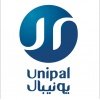Achievements assessment
TERMS OF REFERENCE
FINAL EVALUATION OF MUSAWA CORE PROGRAM 2016 – 2019
Achievements assessment
“Towards a State of Justice and Rule of Law in Palestine”
- BACKGROUND
MUSAWA is a Palestinian NGO established in 2002 by lawyers, former judges and human rights activists dedicated to defending the independence of the judiciary and the legal profession. MUSAWA is a first specialized of its kind pioneer organization that works to contribute effectively to state building through empowering the separation of powers, rule of law, defending the independence of the judiciary, and promoting the legal profession.
The organization is governed by a Board of Directors that provides overall guidance and oversight. The board members represent a group of experts with extensive involvement in the development of the judiciary system in Palestine. The members of the Board of Directors are elected once every three years by the General Assembly. The General Assembly consisting of lawyers, former judges, and human rights advocates is qualified to set up and monitor MUSAWA’s technical, administrative and financial performance.
Since its establishment, MUSAWA has carried out programs that serve its aspirations and vision of promoting a state of justice and rule of law, by ensuring the respect for the rule of law, guaranteeing the positive separation of powers in the three branches of government, building the capabilities of legal professionals to assure quality practice of the law, and guaranteeing that Palestinian law is accessible, fair, effective and accountable.
MUSAWA developed its Strategic Plan 2016 – 2019, based upon an internal review on the implementation of its Strategic Plan 2013 – 2015 and the conclusions and recommendations of the External Organizational Needs Assessment, conducted in July 2015.
MUSAWA’s vision “A State of Justice and Rule of Law in Palestine” reflects an inspiring view of the future of Palestine.
MUSAWA’s mission statement has been reviewed and modified and its new statement for 2017-2019 reads as “An independent specialized Palestinian monitoring body, working in strategic partnership with others, contributing to the establishment of a modern legal and juridical system built on legal foundations, and community monitoring to the performance of the justice pillars in courageous, transparent, professional, a set of values and good governance principles.”
MUSAWA’s core values and beliefs:
- Integrity and Accountability
- Neutrality and Impartiality
- Professionalism, Innovation, and Strive for Excellence
- Strategic partnership with civil society organizations and relevant stakeholders
- Active involvement of beneficiaries in program cycle management
- Gender Equity and Mainstreaming
- Commitment to National Development Plans and Priorities
- Respect for and Safeguarding of Human Rights using a Human Rights Based Approach
MUSAWA’s mission and work are based on the following rights-based principles:
- The right to equality before and/or under the law
- The right to a fair trial
- The right to access to justice
Its work is grounded in its commitment to the Universal Declaration of Human Rights and the associated Treaties and Covenants, especially: International Covenant on Civil and Political Rights; The Convention on the Elimination of All Forms of Discrimination against Women (CEDAW); Convention on the Rights of Persons with Disabilities; Convention on the Rights of the Child; Convention against Torture and Other Cruel, Inhuman or Degrading Treatment or Punishment.
- PURPOSE OF THE EVALUATION
- Objectives of the evaluation
The baseline for this evaluation will be the Organizational Needs Assessment, conducted in July 2015. The aim of this evaluation is to:
- Evaluate MUSAWA’s institutional and internal program achievements, progress, and shortcomings for the years 2016-2019 against the set milestones agreed with the Netherlands Representative Office (NRO);
- Suggest measures to overcome any shortcomings or inadequate progress;
- Aasess MUSAWA’s developed strategies and other internal measures an indicate if these measures have led towards the desired end results set for 2019 and, if not, suggest measures to overcome these shortcomings in MUSAWA’s strategic plan 2020-2024.
MUSAWA’s set milestones for October 2016 (which were examined in a separate review for the year 2016):
- An Internal Operations Manager has been contracted;
- The General Assembly's membership has been extended to Gaza;
- MUSAWA’s bylaws will be changed in order to ensure that Gaza will be represented in the Board of Directors in future elections;
- A monitoring unit has been established internally;
- MUSAWA's organizational structure is operative and key positions are occupied;
- MUSAWA has structured meetings in place; internally and with its governing bodies;
- Gaza and Ramallah offices are working more closely together, and clear lines of communication now exist;
- MUSAWA has adopted the Human Rights Based Approach (HRBA) at all levels;
- MUSAWA has developed gender mainstreaming strategies at all levels;
- MUSAWA has developed a financial strategy and has begun to implement it;
- MUSAWA has developed a fundraising strategy and has begun to implement it;
- MUSAWA has begun to work according to Results-Based Management (RBM), based on the theory of change;
- MUSAWA’s Core Program interventions are monitored and evaluated, according to the monitoring and evaluation strategy;
- MUSAWA will adopt a more analytical approach when it comes to reporting, in order to measure the impact of its program;
- MUSAWA has an operational internal reporting system;
- MUSAWA has updated its procedure manuals and now adheres to them.
Desired end results by 2019:
- MUSAWA's internal (management) structures will have improved and its capacities will have increased, so that its institutional sustainability is safeguarded;
- MUSAWA will have raised the quality and effectiveness of its work, through the adoption of a theory of change, a result-based approach, and a proper monitoring, reporting and evaluation system;
- MUSAWA's financial and fundraising strategy will have led to a diversified and more sustainable funding base.
- MUSAWA’s watchdog role has had a significant impact on the performance of the justice institutions with record of success stories.
-
- SCOPE OF THE EVALUATION
The evaluation will cover the core program's implementation period January 2016 to June 2019, with specific focus on the following:
Relevance: This aspect should address the following issues:
- The relevance of the design of the program and its mechanisms in the Palestinian context
- The relevance of the interventions regarding the needs of target groups
Efficiency: This aspect should address the use of resources used to achieve the desired results. Specifically, the following issues should be covered:
- The methodology, mechanisms, regulations and tools used in the program’s implementation
- Assessment of the efficiency with which programme outputs are being achieved
Effectiveness: This aspect should cover the success of the program in achieving the desired results. In this context, the following issues should be addressed:
- The success of the program on the targeted groups.
- The success of the program in developing the capacity of partners and target groups.
- The effectiveness of the different types of interventions applied on specific target groups. To what extent the methods and means adopted during the design of the interventions have taken into consideration the specific and general context of the beneficiaries and the expertise of other NGOs.
- Assessment of the extent the beneficiaries have been satisfied with the results so far.
- The extent to which the procedures adopted in this programs are in line with transparency and integrity standards.
- Assessment of good practices and lessons learned that can be replicated or taken into consideration in future programming.
Impact: This aspect should cover
- The positive changes of the program on Palestinian communities.
- Evidence that can demonstrate the changes of the beneficiaries.
- The negative impacts of the program on beneficiaries if there are any.
- Identifying the unplanned effects or impacts of the program.
Sustainability: This aspect should cover
- The extent to which activities, are sustained. What are the prospects that these activities will be sustained in the future?
- Assess whether the programs are progressing towards fulfilling the requirements of national policies?
- Assess whether the program is supported by national/local institutions?
- Any additional issues that relate to the sustainability of the impact and outputs of the programs, especially the retaining of new knowledge and skills?
Lessons learnt/ Conclusions
- Analyze areas for improved program planning, especially with respect to setting targets, relevance and capacity of institutions for project decision making and delivery.
- Identify significant lessons and conclusions which can be drawn from the programs in terms of effectiveness, efficiency, sustainability and networking.
-
- Results expected from the evaluation are:
- Verification of the achievement of agreed milestones;
- Identification of best practices applied in the interventions, as well as information about challenges faced and solutions sought;
- Practical recommendations for possible future interventions in addressing priority issues to consolidate the achievements made so far and to strengthen the sustainability of the results and impact;
-
- Uses of the evaluation results
The evaluation is of great importance as the evaluation results will primarily support MUSAWA to review its current position regarding the organization's objectives and to set future priorities for addressing related issues. The results of the evaluation will be used to help develop the strategic plan 2020-2024. Additionally, the results will be shared with relevant stakeholders and used to build more partnerships.
- METHODOLOGY
The evaluation assignment requires participatory approach that includes individual desk study and field study. Field study includes meeting several groups, such as:
- MUSAWA’s Board of Directors and General Assembly members
- MUSAWA’s management and staff
- MUSAWA coalitions’ partners
- CBOs working in the justice sectors
- Members of Lawyers for the Rule of Law Groups and the Palestinian HRDs network
- Key government offices such as Ministry of Justice, Public Prosecution and High Judicial Council
- MUSAWA’s donors and potential donors (specifically Netherlands, Canada and UNDP).
The evaluation team has to provide a list of interviewees before conducting any interviews.
The evaluator should also utilize the suitable PRA methods and tools for information gathering, triangulation, validation and analysis.
- EXPERIENCE AND QUALIFICATIONS
The assessment team should be composed of minimum two experts, of whom one is an international consultant, with long and outstanding experience in evaluation and organizational assessment of NGOs.
The team requirements must include:
- Fluency in English (oral and written) and good knowledge of Arabic;
- Good knowledge and experience of organizational and financial management and accounting
- Good knowledge of the Human Rights Based Approach, Gender Mainstreaming and Result Based Management
- Experience in similar types of reviews or evaluations
- Understanding of international development cooperation project work and project cycle management.
- Experience in the national context, knowledge of the working culture and socio-economic/political contexts of the Palestinian Territory.
- Competence in the proposed methodology to be used, including good analysis, presentation and report-writing skills
- TIMEFRAME
The assignment is to start by mid July 2019 after the contract with the evaluator has been finalized and final report is expected by the 15th September 2019.
The desk study will include all relevant literature that was produced in the course of 2016-2019 by the program or has direct relation to it. The field study will be conducted in the form of observations, interviews and focus group discussions with MUSAWA’s staff and governing bodies.
- DELIVERABLES / REPORTING
The final evaluation report should be in English and submitted on 15th of September 2019. It should present all the information obtained in the assignment and take into account the comments given by MUSAWA’s partners. The structure of the final report is to be presented as follows:
- Executive Summary
- Evaluation purpose and methodology
- Key findings
- Progress measured against the set milestones
- Progress measured against the desired end results and likelihood that the developed strategies and other internal documents will lead to it
- Conclusions and recommendations
In addition to the report, the team will present its findings to MUSAWA and the Netherlands Representative Office in two separate meetings.
Notes:
- MUSAWA’s website: www.musawa.ps (Arabic and English).
- MUSAWA’s strategic plan and annual reports are published via this link: http://www.musawa.ps/about/transparency.html
- MUSAWA’s publications are found on this link: http://www.musawa.ps/periodicpublications
Offers (narrative and financial) should be submitted by Tuesday the 2nd of July, 2019.
Please send your offer in a sealed envelope (financial offer should be in a separate envelope as it will be assessed after examining the narrative offer), to the following address:
MUSAWA’s Office
57 Al-Mahakim St. (opposite to Izheiman coffee store)
Al-Balou’, Al-Bireh
Ramallah and El-Bireh Governorate




